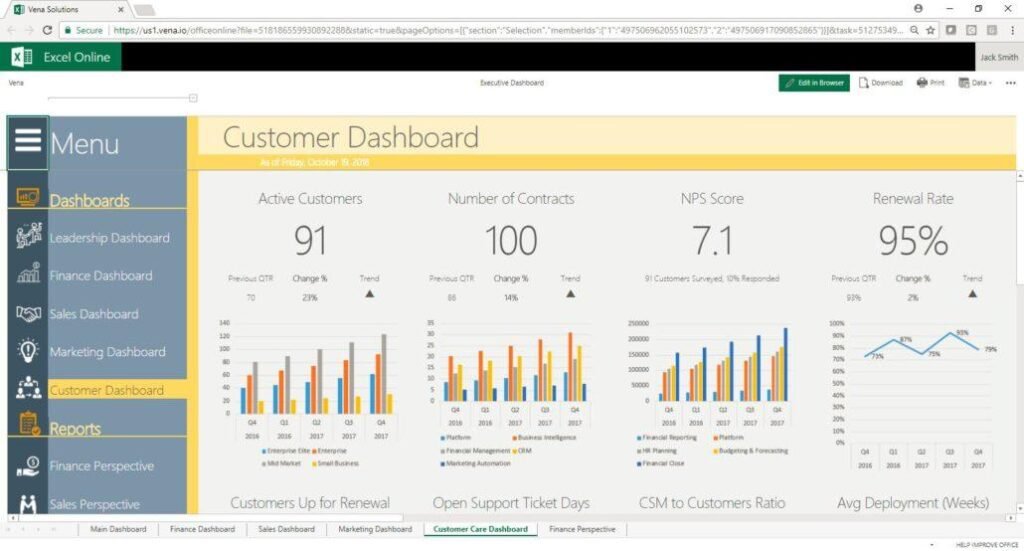
Top Good Free Budgeting Software for Effective Financial Management
In today’s fast-paced world, managing your finances effectively can feel overwhelming. Thankfully, there are numerous good free budgeting software options available that can help you track your spending, save money, and achieve your financial goals without the need for a hefty price tag. This article will explore the top free budgeting software tools, their features, benefits, and practical tips for using them successfully.
Why Use Free Budgeting Software?
Utilizing free budgeting software offers numerous advantages, including:
- No cost: Save money while managing your finances.
- User-friendly interfaces: Most free budgeting tools are designed with simplicity in mind, making them accessible to everyone.
- Track expenses easily: Keep an eye on your spending in real-time.
- Plan for the future: Set financial goals and monitor your progress.
Top Good Free Budgeting Software Options
Here are some of the best free budgeting software tools to consider:
1. Mint
Mint is one of the most popular budgeting tools available. It connects to your bank accounts and credit cards, automatically tracking your spending and categorizing transactions.
- Features: Expense tracking, bill reminders, budget setting, goal tracking.
- Website: mint.com
2. YNAB (You Need a Budget)
YNAB offers a free trial and is designed to help users prioritize their spending according to their upcoming expenses. After the trial period, it requires a subscription, but the free version is highly effective.
- Features: Zero-based budgeting, debt tracking, income allocation.
- Website: youneedabudget.com
3. PocketGuard
PocketGuard helps you see how much disposable income you have after accounting for bills, goals, and necessities. This minimalist approach can simplify budgeting.
- Features: Spending tracker, goal setting, financial insights.
- Website: pocketguard.com
4. EveryDollar
EveryDollar provides an easy way to create a monthly budget. It employs the zero-based budgeting method, ensuring all your income is allocated to expenses, savings, or debt repayment.
- Features: Drag-and-drop functionality, budget tracking, savings goal emphasis.
- Website: everydollar.com
5. GoodBudget
GoodBudget is based on the envelope budgeting system, where users allocate portions of their income to various digital envelopes.
- Features: Envelope budgeting, expense tracking, debt management.
- Website: goodbudget.com
Benefits of Using Free Budgeting Software
Here are some benefits of utilizing free budgeting software:
- Enhanced Financial Awareness: Users can visualize their spending habits and make informed decisions.
- Increased Savings: By tracking expenses and adhering to budgets, users can identify areas to save more effectively.
- Goal Achievement: Setting and monitoring financial goals becomes easier with clear insights into spending patterns.
- Accessibility: Most budgeting tools are available on mobile devices, allowing users to manage their finances on the go.
Practical Tips for Using Budgeting Software
- Make it a Habit: Regularly check your budget to ensure you’re staying on track.
- Set Realistic Goals: Create attainable financial goals to boost motivation.
- Understand Your Categories: Familiarize yourself with how to categorize expenses efficiently.
- Review and Adjust: Periodically review your budget and adjust as necessary to reflect changes in income or expenses.
Case Studies: Success Stories with Free Budgeting Software
Let’s take a look at a few success stories from users who implemented free budgeting software into their financial routines:
Case Study 1: Sarah’s Debt-Free Journey
Sarah used Mint for a year to track her expenses after accumulating some debt. By categorizing her spending and identifying unnecessary expenses, she managed to cut down on dining out, saving over $200 a month. This provided her the breathing room to pay off her credit card debt sooner than expected.
Case Study 2: John’s Savings Goals
After setting up a goal in EveryDollar, John was able to save for a trip to Europe in just a year. By monitoring his spending and adjusting his budget monthly, he ensured that he categorized enough funds towards his travel goal, allowing him to enjoy his trip without financial stress.
First-Hand Experience: Navigating the World of Budgeting Software
As someone who has extensively used various budgeting tools, I can attest to their transformative power. Initially overwhelmed by my spending habits, I turned to Mint. The simplicity of linking my bank account and automatically categorizing transactions has made budgeting feel less like a chore and more like an empowering routine. I appreciate how it provides insights into my spending patterns, which I never noticed before. By focusing on areas to cut back, I have redirected funds into savings and investments.
Conclusion
Managing your finances doesn’t have to be overwhelming or costly. With a variety of good free budgeting software options available, you can find the right tool that fits your needs and helps you stay on track with your financial goals. By carefully selecting, implementing, and utilizing these tools, you can attain greater financial awareness, save more effectively, and achieve your aspirations for the future.
| Budgeting Software | Key Features | Website |
|---|---|---|
| Mint | Expense tracking, bill reminders | mint.com |
| YNAB | Zero-based budgeting, debt tracking | youneedabudget.com |
| PocketGuard | Disposable income calculator | pocketguard.com |
| EveryDollar | Drag-and-drop budgeting | everydollar.com |
| GoodBudget | Envelope budgeting system | goodbudget.com |